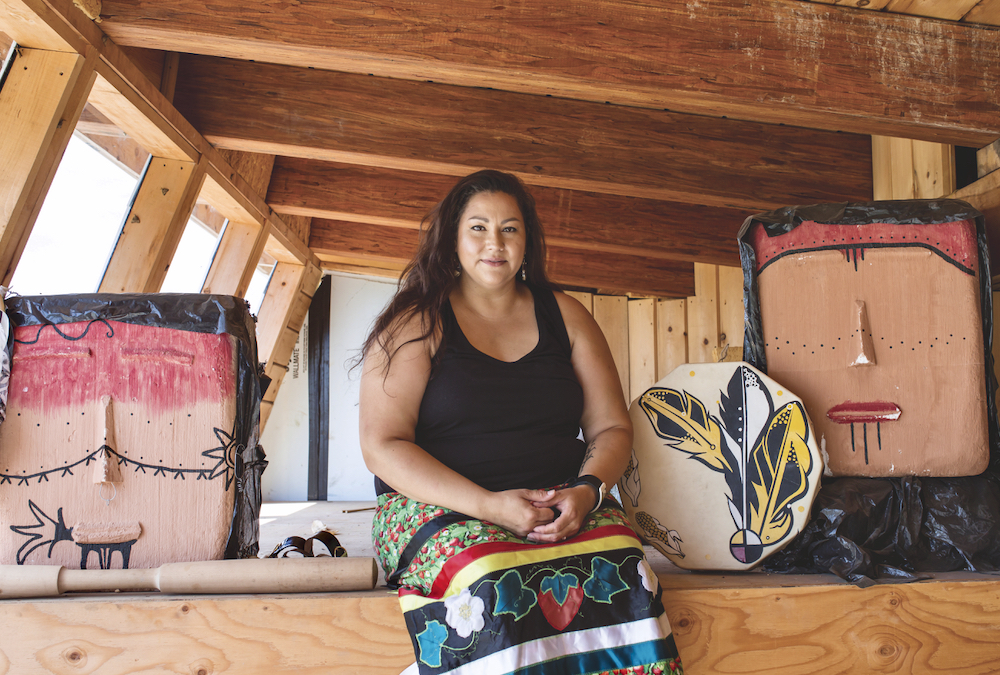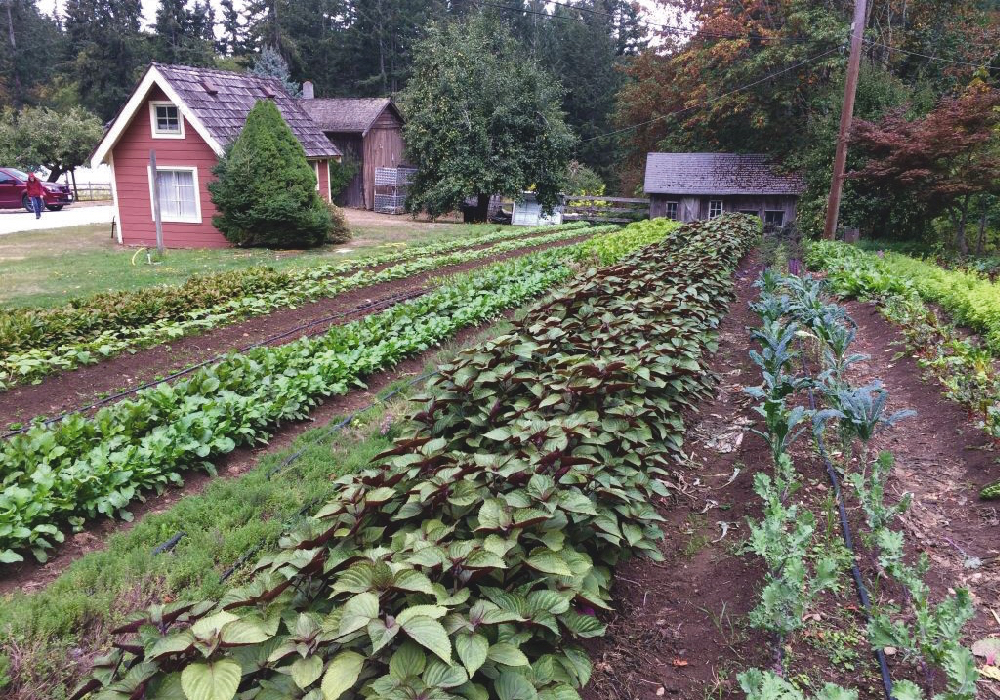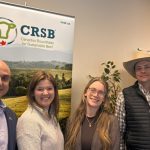Let’s just say that for these four Canadian high school students, the act of sitting on the floor and dipping their hands into a communal bowl of rice shared with 75 other people was an uncomfortable experience. Yet this way of eating is routine for millions of the world’s poor.
“I only had to go hungry for one night, but it made me realize that so many others live like that daily,” says Kaitlyn Kitzan, one of the Manitoba and Saskatchewan students selected to attend the 2015 World Food Prize Global Youth Institute last October during the Borlaug Dialogue International Symposium in Des Moines, Iowa.
Read Also

Five reasons why you avoid farm bookkeeping
Bookkeeping for the farm business might not be anyone’s favourite chore, but staying on top of it can help your farm access the funds it needs to grow.
Kitzan, a Grade 12 student at Sacred Heart High School in Yorkton, Sask., attended an Oxfam Hunger Banquet along with other students from the United States, China, India, Kosovo, Mexico and Turkey. Students and their mentors were grouped either into the lower class — the majority of people in the room — who shared a bowl of rice on the floor; the middle class, who sat on chairs and lined up for rice and chickpeas; or the upper class, who were served a three-course meal at dinner tables.
“When I had read hunger statistics before I went to this event, I didn’t think about them as people starving,” says Bailey Gitzel, a Grade 12 student from Carman Collegiate in Manitoba, who drew a lower class ticket. “This put me into someone else’s shoes and made me realise that hunger is real. It’s not just words on a piece of paper.”
Hard work to get there
The students had to work hard to get to the conference, spending many hours to prepare an extensive research paper on the topic of “Sustainably Feeding 9 Billion by 2050.” Each student presented their paper at the end of the conference to a diverse group of distinguished international experts and scientists from many different disciplines, as well as past and present World Food Prize laureates.
“Being a farm kid from Saskatchewan, I thought this was a really cool event to combine my passion for international development and agriculture together into one event,” says Kitzan, who participated in an international development trip to Equador last spring, and wrote her research paper about her experiences there.
Kitzan enjoyed the hands-on activities at the conference and hopes to bring at least one of them back to her own school for other students to get involved in. “We packaged thousands of meals for a Third World country,” she says. “If I can inspire others to do even little actions like this towards alleviating world hunger, we’ll get closer to that goal than we are now.”
Teacher mentor Kerrie Shearer from Sacred Heart High School was excited to be able to bring curriculum guides and hands-on activities back to her school. “It’s very disheartening to go to a conference, and it’s so impactful, but then there’s nothing to bring back,” says Shearer. “The “ahha” moment for me was seeing things I could easily bring back to my school to create awareness among my students.”
People of influence
Students and their mentors rubbed shoulders with some high-powered movers and shakers in the agricultural and scientific world, as well as people who have made a big difference to world hunger, such as the 2015 World Food Prize Laureate, Sir Fazle Hasan Abed of Bangladesh. Sir Fazle founded BRAC, the largest non-governmental organization in the world, which has improved the lives of nearly 150 million people worldwide.
“Getting my picture taken and being presented with a certificate by the World Food Prize Laureate is something I won’t forget for a long time,” says Sheldon Daniel, a Grade 12 student in Avonlea, Sask. who grew up on a family farm, and plans to pursue a degree in agriculture at the University of Saskatchewan. “I’ve always been interested in agriculture, and I thought the conference would be a good way to get to know people in the industry.”
After presenting his paper on the future of sustainable agriculture in China to Sir Fazel and the assistant dean of Agriculture at Iowa State University, Daniel was able to meet and chat with them. “I met a lot of important people, and I think they might know my name if I ever run into them again, so it might help to broaden my future opportunities as well,” he adds.
Making important connections
Making connections, especially for rural kids, is a valuable part of the event, says Daniel’s science teacher and mentor for the event, Larry Bogdan. “Small town kids often get such a local idea of issues, and don’t get exposure to the fact that it’s a small part of a big picture,” he says. “This kind of event is important to open up a lot of possibilities, and help young people be less shy about making connections.”
A lot of universities were present at the event, says Shearer. “On the last day when the students were giving their speeches, there were delegates listening from American colleges, who were waiting to cherry-pick the best minds,” she says. “These kids all worked really hard to even get there. They are all students with strong science/agriculture minds and their plans are to do big things.”
Gitzel is already an enterprising young farmer who raises chicken and produces honey on her family farm near Carman, Man. She says the conference was a great opportunity to listen and talk to the people who make decisions in the agricultural industry. Gitzel got to chat with Rob Fraley, executive vice-president of Monsanto, about the future of agriculture. “He talked about using different technologies so that one day we could not use as much land and resources but still grow the amount of food we need,” she says.
The Manitoba students were chosen by Agriculture in the Classroom — Manitoba and the Manitoba 4-H Council, and travel costs for the students and mentors were sponsored by Manitoba Canola Growers Association, Manitoba Corn Growers Association, Monsanto Canada and Viterra.
Saskatchewan students and mentors were selected and sponsored by the Saskatchewan Ministry of Agriculture.
It was a life-changing experience for the students and their mentors, each coming back with renewed resolve, fresh ideas, a lot of inspiration for the future of agriculture, and a burning desire to help eliminate food insecurity around the world.
As a science teacher with a farm background, Rosanne Massinon from Carman Collegiate was inspired by the World Food Prize event to tweet thanks to all her farming family and friends.
“It really put a value on what they do every day, and demonstrated that there’s a bigger purpose for agriculture than just making a living,” she says. “It struck me that hunger isn’t something we have to have in our world, and that with agriculture education, particularly in the developing world, we can live in a world where people don’t have to go hungry. And the young people at this event are inspired and want to take on that task.”
Gitzel, who also attended the Grow Canada conference in Ottawa in 2014, says the World Food Prize helped reinforce her decision to study food genetics, but also consider development work overseas in the future. “After hearing people’s stories of how they were able to change people’s lives, I would really like to be able to do that,” she says. “But I have to go to university first and take the steps to get there.”
Pick your passion
Laura Didyk, the other Manitoba student attending the event, says meeting people from all over the world had the greatest impact on her. “Everybody had something unique that they brought and you got to see a wide variety of opinions and learned that it’s not just one thing that is going to affect food security, it’s a bunch of things,” says Didyk, who attends Grade 11 at St. Paul’s Collegiate in Elie, Man.
Didyk plans to go to university and is considering the field of agricultural sciences. A big message at the conference, says Didyk’s mother, Tracy Claeys, who is also her 4-H leader and attended the conference as her mentor, was that there is a huge need in agriculture for people from various fields of expertise. “Speakers said that we need people who can communicate, build databases or crunch numbers, so it doesn’t matter what you do; pick your passion and you can use that to help food security,” she says.
“In the future, I can see myself bringing international development into my career and working with different third world countries and their agriculture practices,” says Kitzan who is heading to the University of Saskatchewan to pursue a degree in animal science. “This event allowed so many creative minds from all across the world, who have this passion for agriculture, to get together and share our ideas and our frustrations. It gave us the opportunity to make connections and friendships and memories. Now, after I have come back home, I have all those people to look up to or connect with to help me keep up with my goal.”
Daniel agrees it’s the people he met that he’ll remember most. “All of the speeches were good, but I watched one young guy from India present, and he couldn’t have been more than 15 years old, and he was the best speaker I have ever seen,” says Daniel. “You might think you’re a pretty smart kid from rural Saskatchewan, but there were really smart kids from all over the planet. And it was then that I thought it’s these people that are going to make a difference in the world. They are here because they want to do that.”
















